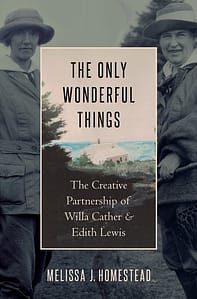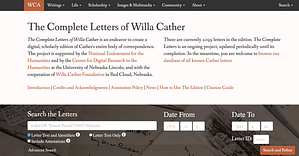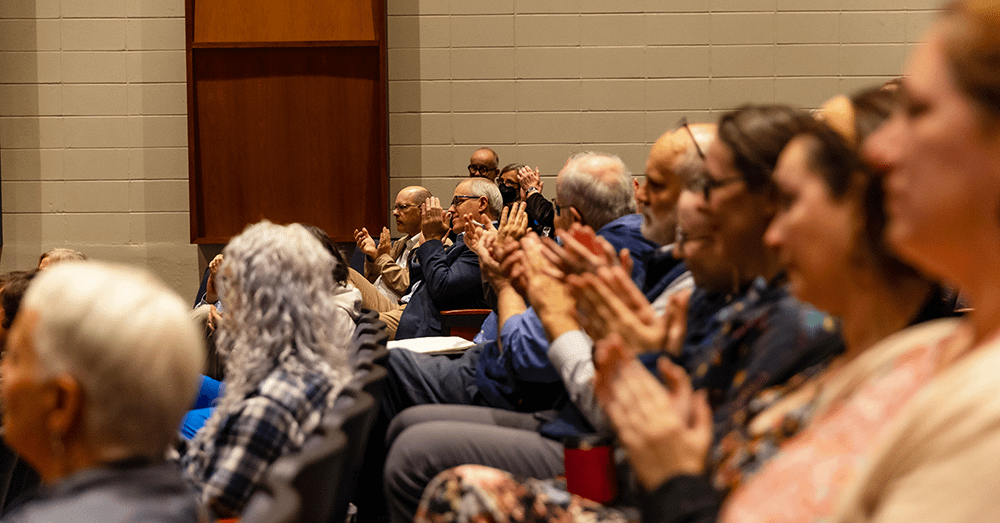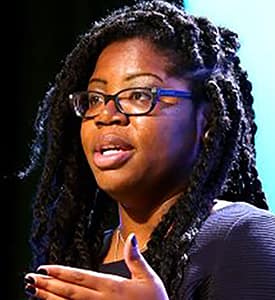English students enter world of Willa Cather: ‘A scribbled, post-marked history’
Professor Maura D'Amore's "Letters" class uses online archive, author's insights to learn more about a famous American writer

The cover of Melissa Homestead’s upcoming book on Willa Cather.
Mara Brooks ’22, a student in Saint Michael’s English Professor Maura D’Amore’s Letters class, reports on an interesting recent activity for the class in this guest story:
On a long and winding road through history, literature, and poor penmanship, Professor Maura D’Amore’s Letters class recently sampled the letters of Willa Cather, who is most famous for writing O Pioneers! and My Ántonia. A massive library of the writer’s correspondence is available to read on The Willa Cather Archive. Melissa Homestead, professor of English at the University of Nebraska and author of a significant forthcoming book on Cather, The Only Wonderful Things: The Creative Partnership of Willa Cather and Edith Lewis (Oxford UP 2021), recently joined Professor D’Amore’s class to discuss her editorial role in the digitization project and the letters’ historical and academic value.
The Willa Cather Archive was founded by the author’s alma mater, the University of Nebraska-Lincoln, to make literary scholarship more personal and accessible. In the past twenty-three years, the Archive has digitized and published thousands of Willa Cather’s letters, speeches, interviews, and short stories for public access. In response to a student question about the significance of the letters to scholars’ understandings of Cather, Homestead suggested that while “the letters aren’t exactly a pathway into Willa’s soul, they do offer interesting, sometimes funny information about how her travels and relationships shaped her writing.” Indeed, the conversational voices of Cather’s correspondences offer insight into her everyday life, on the one hand, and her efforts to craft a public persona, on the other.
 Students in D’Amore’s class were interested in the potential of Homestead’s work, and the digital archive more broadly, to help scholars piece together important fragments of ignored lesbian history. Although Cather lived with her partner Edith Lewis for nearly four decades, heteronormative scholarship has either ignored Lewis’s existence altogether or dismissed their relationship and creative collaboration. Homestead addressed the incomplete nature of any archive as historical record when she reminded students that although Cather and Lewis lived together for 38 years, there are very few extant letters written from Cather to Lewis. Homestead is hopeful that her research will open up new opportunities for the blossoming field of queer studies to read Cather’s literature in a more intersectional light.
Students in D’Amore’s class were interested in the potential of Homestead’s work, and the digital archive more broadly, to help scholars piece together important fragments of ignored lesbian history. Although Cather lived with her partner Edith Lewis for nearly four decades, heteronormative scholarship has either ignored Lewis’s existence altogether or dismissed their relationship and creative collaboration. Homestead addressed the incomplete nature of any archive as historical record when she reminded students that although Cather and Lewis lived together for 38 years, there are very few extant letters written from Cather to Lewis. Homestead is hopeful that her research will open up new opportunities for the blossoming field of queer studies to read Cather’s literature in a more intersectional light.





